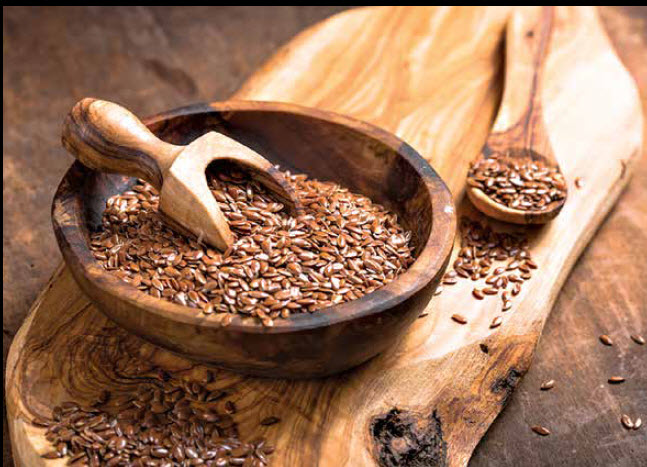 By: Nick Thomas
By: Nick Thomas
Flaxseed has been around for centuries and is one of the richest sources of omega-3 fatty acids. This small, golden-colored seed has the potential to reduce the risk of heart disease, cancer, stroke, and diabetes. It can also greatly improve digestion, complexion, cholesterol, and hormone levels.
Flaxseed makes an excellent, all-natural dietary supplement when trying to lose weight. While the natural inclination is to eat less to lose weight, this is not always the healthiest option. It is more about what you eat. Flaxseed is very fibrous which helps the body feel full longer. Its high fiber content and low calorie count benefits the body by still providing the necessary source of energy minus all the bad kinds of fat. This also helps in reducing inflammation that allows the body to retain excess weight and ultimately making weight loss easier.
Fiber can be either water soluble or insoluble, and it just so happens that flaxseed contains both types making it easier to be flushed from the body by simply drinking water. While flax is high in fiber, it actually contains very little carbs making it a good source of energy without the sugar. Flaxseed also contains high levels of mucilage gum which is a gel-forming fiber that is water soluble and benefits the intestinal tract by keeping the food from emptying into the small intestines too fast, increasing nutrient absorption. Both soluble and insoluble fiber supports body detoxification and fat loss and reduces sugar cravings. Finally, this amazing fiber content also tends to be of great digestive benefit. Fiber helps trap the fat and cholesterol during digestion preventing it from being absorbed by the body.
Flaxseed will also make hair, nails, eyes, and skin healthier. Shiny hair and strong nails will not happen overnight, but tossing a tablespoon or two of ground flaxseed in eggs, oatmeal, or a smoothie will make a significant difference over time. It may even provide improvement in acne, rosacea, and eczema due to the essential fats and B-vitamins which reduce dryness and flakiness.
Antioxidants are important for the body to function, and it just so happens that flaxseed contains them as well. An antioxidant is a molecule that prevents oxidation of other molecules. Oxidation in molecules is a chemical reaction that may produce free-radicals that, in turn, may lead to chain reactions that damage cells. Flaxseeds are abundant in lignans, a group of chemical compounds found in plants. They have a higher antioxidant value compared to any other fruit or vegetable. Lignans may have the ability to support the immune system and even act as an alternative to hormone replacement therapy for women.
Flaxseed contains omega-3 fatty acids as well which help lower levels of depression by boosting the effects of antidepressants and may help cure the depressive symptoms of bipolar disorder. They also help reduce inflammation. Flaxseed even contains DHA which is important for visual and neurological development, and can reduce the mental overactivity of those with ADHD and enhance their memory.
Finally, the combination of omega-3 fat, lignans, and high dietary fiber has been shown to reduce the size of tumors and help prevent and fight cancer and heart disease.
Flaxseed may not be the most exciting addition to your diet from a taste perspective, but from a health benefit side, it is certainly worth considering.
By: Nick Thomas
owner of Prime Performance Training, and Certified Sports Nutritionist










 June 20, 2025
June 20, 2025



